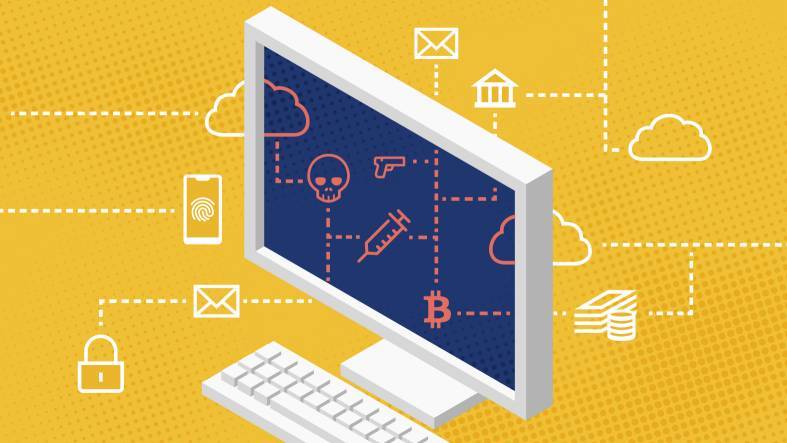Darknet Courts: How Disputes Are Settled Without the Law

In the hidden corridors of the dark web, no government courts exist to enforce contracts or punish fraud. Yet marketplaces, vendors, and buyers still need a way to resolve conflicts. Out of necessity, the dark web created its own system of justice: darknet courts.
These informal systems were born to provide:
- Dispute resolution between anonymous parties
- Enforcement of trust in lawless environments
- Incentives for honest trade and service
Instead of judges and juries, darknet courts rely on moderators, escrow agents, community votes, and decentralized arbitration to maintain a fragile but functioning order.
Origins of Darknet Justice: From Chaos to Structure
The earliest dark web marketplaces operated on blind trust. Predictably, scams, frauds, and betrayals flourished. Without law enforcement involvement, communities had to invent their own enforcement mechanisms to survive.
How Early Markets Handled Disputes
- Direct Messaging: Buyers and sellers negotiated refunds privately.
- Reputation Systems: Profiles built trust scores based on feedback.
- Community Shaming: Forums publicly exposed scammers.
As trade volumes grew, informal systems became formalized. Darknet courts emerged as recognized processes, handling everything from product disputes to accusations of vendor misconduct.
How Darknet Courts Work: A Step-by-Step Journey
The structure of a darknet court can vary between communities, but certain patterns repeat across the hidden web.
Core Elements of Dispute Resolution
- Escrow Services: Payments are held by a third party until both sides are satisfied.
- Evidence Submission: Both buyer and seller present screenshots, encrypted messages, and transaction IDs.
- Moderator Arbitration: Trusted moderators evaluate evidence and make binding decisions.
- Appeals Process: In rare cases, disputes escalate to community votes or platform administrators.
Major markets like AlphaBay and Dream Market formalized these steps, introducing customer service ticket systems where cases could be submitted and tracked anonymously.
The Role of Moderators: Judges in the Shadows
Moderators are the linchpins of darknet courts. They are selected based on trust, reputation, and history within the community. Their decisions can make or break reputations.
Duties of a Darknet Moderator
- Evaluate Evidence: Sift through encrypted conversations and blockchain transactions.
- Maintain Neutrality: Avoid favoritism to preserve community trust.
- Enforce Judgments: Release or refund escrow payments as decided.
Moderators typically earn small fees for their service, paid in cryptocurrency. However, with great power comes risk — corrupt moderators have been known to accept bribes or disappear with escrowed funds.
Reputation as Currency: The Invisible Hand of Trust
In traditional commerce, legal contracts enforce behavior. On the dark web, reputation is everything. A vendor with a flawless record can charge premium prices; a buyer with a history of false claims finds themselves banned from marketplaces.
How Reputation Is Built and Lost
- Verified Transactions: Successfully completed trades boost trust scores.
- Peer Reviews: Buyers and sellers leave detailed feedback.
- Moderator Endorsements: Official endorsements from moderators enhance credibility.
Reputation systems act as a distributed enforcement mechanism. Destroy your reputation, and you effectively exile yourself from the digital economy.
Alternative Systems: Decentralized Arbitration and Smart Contracts
New technologies offer alternative dispute resolution methods beyond human moderators. Decentralized markets like OpenBazaar and privacy-focused projects integrate smart contracts and multi-signature wallets
Emerging Dispute Resolution Mechanisms
- Multisig Escrow: Requiring multiple private keys to release funds ensures no single party controls payments.
- Blockchain Arbitration: Disputes are resolved transparently on-chain through decentralized autonomous organizations (DAOs).
- Peer Arbitration Pools: Groups of random users are selected to judge disputes collectively.
These systems reduce the risks of moderator corruption but introduce new complexities like voting incentives and arbitration token economies.
Famous Cases: Legendary Disputes in Darknet History
Some disputes and court cases on the dark web have become legendary, highlighting the strengths and weaknesses of the system.
Notable Disputes
- The Silk Road Exit Scam: Rumors persist that moderators staged partial thefts disguised as user disputes before the site’s collapse.
- AlphaBay Moderator Revolt: Internal moderator disputes allegedly contributed to operational instability before AlphaBay’s 2017 takedown.
- Dream Market Vendor Disputes: Massive fraud accusations led to widespread moderator-led ban waves in 2019.
These incidents underline a simple truth: without official law, justice depends entirely on the ethics of the few entrusted with power.
